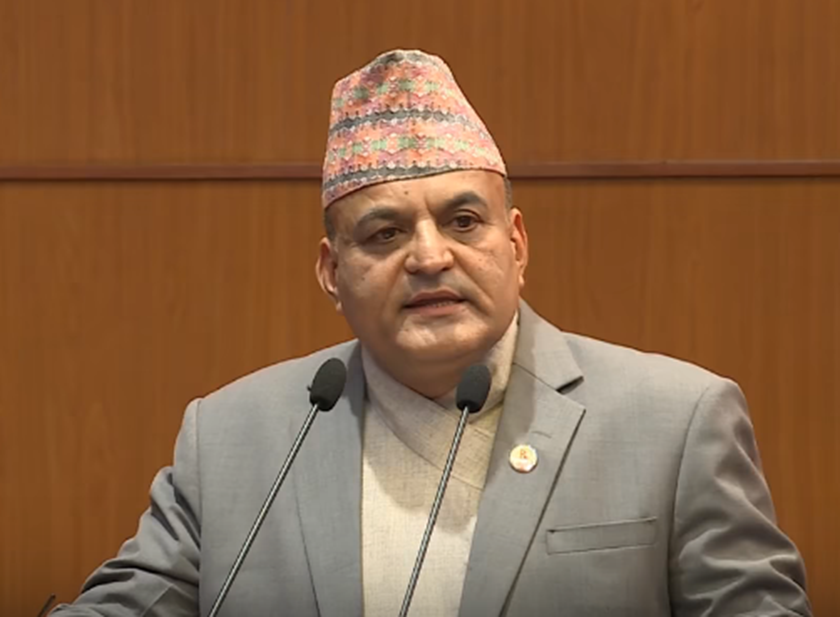Sarlahi. Jitendra Mahato, 20, of Gelha, Hariwan Municipality-4, has been earning up to Rs 3,000 daily by operating a dunatapari industry.
Known as an exemplary entrepreneur in the village, he has expanded his business by adding equipment to make dunatapari.
Jitendra, who inaugurated the new equipment on Monday, expressed his expectation that production will double in the coming days. He started the industry nine months ago after learning the skill of making dunatapari by participating in a micro-enterprise program organized by Hariwan Municipality.
Mahato has employed 20 youths in the industry that makes dunatapari from the leaves of sal and bhorla that are wasted in the Chureka forest. He was studying for a bachelor’s degree at Chaturbhujeswar Janata Multiple Campus in Hariban-10, Sukepokhari, and was planning to get foreign employment after class 12.
He said that he was preparing to go abroad and became an entrepreneur with the help of Ward Chairman Keshav Raj Thapa.
‘I was in the final preparations to go abroad after completing class 12 (plus two)’ he said, ‘When I went to ask for help from the Ward Chairman, he told me to do something, so I got encouragement and learned the skill. After being taken to a seminar on micro-enterprises organized by the municipality. I also had the desire to become an entrepreneur. The desire was aroused. However, I was very sad due to lack of investment. After his support, I am doing business today.’
Mahato said that since the demand for Dunatpari is high in the market, a new equipment worth Rs. 360,000 has been installed. He mentioned that earlier, a piece of equipment was installed for Rs. 240,000.
‘From that, five thousand Dunatpari of five different types are produced daily. Now the goal is to produce 10,000 more products daily,’ he said.
He claims that after installing the new equipment, up to three lakh Dunatpari can be produced per month. He informed that this will result in a daily profit of 2,500 to 3,000 after deducting the expenses of labor, production, and marketing.
He has experience that since the dunatapari is made from tree leaves, it is more environmentally friendly and is preferred by consumers than plastic products. Jitendra urged to encourage young entrepreneurs from all levels by using more locally produced, environmentally friendly materials.
He said that it is necessary to involve youth in micro-enterprises as this will discourage them from going for foreign employment. ‘Banks that initially did not accept them are now calling them for loans. “Initially, I didn’t have the capital to start a business,” he recalled. “When I asked for a loan, banks and financial institutions didn’t give it.”
Mahato said that he is now calling and asking for a loan. He said that the industry, which was first started with a loan of 100,000 rupees from the Sagun Savings and Loan Cooperative in Hariban, has not faced the same crisis as that time.
The products produced by the Bhajun Baba Dunatpari industry run by Jitendra reach markets in Hariban, Nawalpur, Bagmati, Lalbandi, Barhathawa, Bayalbas, Malangwa and other places in the district.
He said that products such as sal leaves, bhoj leaves, dunatpari and others are made available in the market as per the demand of consumers. Hariban Municipality Mayor Ramesh Budhathoki said that the municipality is formulating a strategy to encourage those like Jitendra who do not have investment but plan to become entrepreneurs.
Ward Chairman Keshav Raj Thapa said that the country will only move forward on the journey of prosperity by connecting the youth to local resources and making them self-employed.
He said that the youth who have been asking for help to drop out of school and go abroad for employment have been encouraged to start their own businesses in their villages and live with their families.































प्रतिक्रिया दिनुहोस्